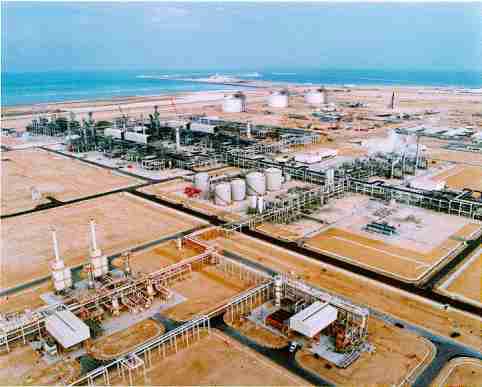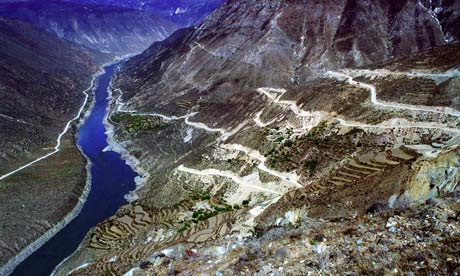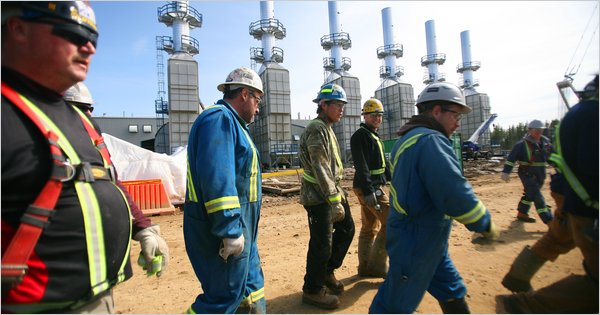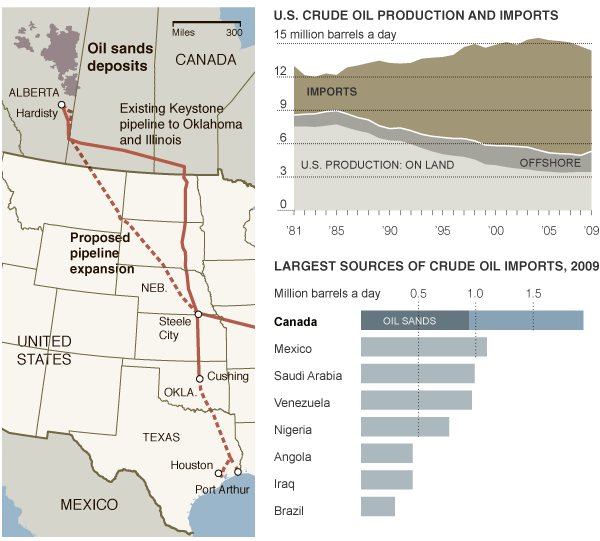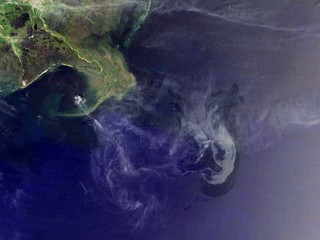
WSJ has a big spread on natural gas recently.
The chart that caught my eye (besides the nice graphic on "tapping the gas--click to enlarge) is the comparison of known global reserves of conventional natural gas and the estimates of shales in North America alone.
Historically, we've not really looked for gas, instead contenting ourselves with whatever we found when looking for oil. This "associated" gas (as in, associated with oil) is the lighter stuff that typically sits on top of the oil deposit. When you see that image of gas being burned 24-7 at an oil field, that's just the oil company saying, I'm not interested in the gas, just the oil, so I burn off the former.
Point being, when you only view the world of natural gas in terms of associated gas, then you're left--unsurprisingly--believing that all the gas you can access is already controlled by the same states that control the remaining, easily-access oil--meaning the Middle East and Eurasia, which dominate the know gas reserves to the tune of something like 4,500 trillion cubic feet.
For comparison's sake, the world currently burns about 115-120 tcf now, but that volume is naturally expected to rise quite a bit in the future. We use almost 25 tcf a year.
Well, when you say shale gas is accessible at a reasonable cost (to include enviro impact), then all of sudden North America has an additional reserve (710 tcf) thats' more than twice its known conventional reserves (309 tcf).
What level of technology and cost is required to tap more of that vast total resource endownment? To be determined, as usual, by the market.
Jaffe's bold analysis sums up the potential for new rules:
I have been studying the energy markets for 30 years, and I am convinced that shale gas will revolutionize the industry—and change the world—in the coming decades. It will prevent the rise of any new cartels. It will alter geopolitics. And it will slow the transition to renewable energy.
To understand why, you have to consider that even before the shale discoveries, natural gas was destined to play a big role in our future. As environmental concerns have grown, nations have leaned more heavily on the fuel, which gives off just half the carbon dioxide of coal. But the rise of gas power seemed likely to doom the world's consumers to a repeat of OPEC, with gas producers like Russia, Iran and Venezuela coming together in a cartel and dictating terms to the rest of the world.
The advent of abundant, low-cost gas will throw all that out the window—so long as the recent drilling catastrophe doesn't curtail offshore oil and gas activity and push up the price of oil and eventually other forms of energy. Not only will the shale discoveries prevent a cartel from forming, but the petro-states will lose lots of the muscle they now have in world affairs, as customers over time cut them loose and turn to cheap fuel produced closer to home.
The shale boom also is likely to upend the economics of renewable energy. It may be a lot harder to persuade people to adopt green power that needs heavy subsidies when there's a cheap, plentiful fuel out there that's a lot cleaner than coal, even if gas isn't as politically popular as wind or solar.
But that's not the end of the story: I also believe this offers a tremendous new longer-term opportunity for alternative fuels. Since there's no longer an urgent need to make them competitive immediately through subsidies, since we can use natural gas now, we can pour that money into R&D—so renewables will be ready to compete without lots of help when shale supplies run low, decades from now.
To be sure, plenty of people (including Russian Prime Minister Vladimir Putin and many Wall Street energy analysts) aren't convinced that shale gas has the potential to be such a game changer. Their arguments revolve around two main points: that shale-gas exploration is too expensive and that it carries environmental risks.
I'd argue they are wrong on both counts.
Definitely a story to clip.
(click to enlarge)
 Tuesday, June 8, 2010 at 12:01AM
Tuesday, June 8, 2010 at 12:01AM  Pretty basic chart that shows Asia paying higher-than-European prices for Saudi light crude seven out of the last ten years (2000-2009), only to start receiving a steep discount in the second and third months of this year, suggesting that a worm has indeed turned.
Pretty basic chart that shows Asia paying higher-than-European prices for Saudi light crude seven out of the last ten years (2000-2009), only to start receiving a steep discount in the second and third months of this year, suggesting that a worm has indeed turned.








